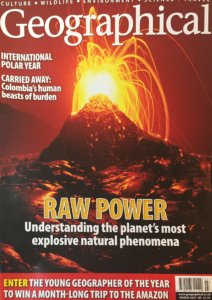Volcanoes are supposed to be hot, so why are cold volcanoes found all over the solar system? In this article, we are going to be exploring Cryovolcanism.
Hot vs Cold
You are probably aware of volcanic activity on Earth – Volcanoes spew hot lava which is molten rock and various gases. It is believed that heat is part of the mechanism of why volcanoes occur. So why is it that ice-cold cryovolcanoes are being found in various part of the solar system? How can volcanoes be cold?
Not only does cryovolcanism exist but we are finding it throughout the solar system. The dwarf planet, Ceres was expected to be a boring, inactive lump of rock. But instead, we found cryovolcanoes on Ceres as well as on Titan, which is one of the moons of Saturn and also on Pluto.
Pluto is really far out from the sun and so we expect it to be extremely cold, frozen and inactive. So the volcanic activity on Pluto was a bit of a surprise.
Do we really understand volcanoes?
It may all come down to the fact that we have mistaken what volcanoes are in general. We think we know how volcanoes work on planet Earth. But if you look closely, you will see that people who study these things don’t really know exactly why volcanoes happen. This issue of Geographical magazine contains an article that admits that we don’t even know the basics of how volcanoes work.


So it’s a bit of a misnomer to say that we know exactly why volcanoes happen on Earth, let alone cryovolcanoes in space.
Commonalities in eruptions
I think we should look beyond individual types of eruptions to a single mechanism that unites them all. What I’m saying is that eruptions and volcanoes are all expressions of the same principle: The Black Hole Principle.

The Black Hole Principle
If you remember, The Black Hole Principle says that light comes in from higher dimensions and then splits into matter and antimatter and these combine again to form light. So you have these intermittent eruptions of energy and particles.
We have also looked in previous episodes at how The Black Hole Principle creates water and even substances that we normally call ‘fossil fuels’ such as methane.
And that’s indeed what we see coming out of these Cryovolcanoes: methane, water, and ammonia.
In fact, we actually see water vapour coming out of volcanoes on Earth as well. In another previous episode, we looked at how stars actually emit water bullets.
Transcending the eruption
This is what I’m putting forward, that we have to transcend this concept of a volcanic eruption of ‘stuff’. The energy starts out in a different dimension and comes through and expresses itself at every single level of the universe.
So whether that be a hot planet or a cold planet, the energy is the same. The principle is the same. The Black Hole Principle is creating volcanoes at every level that we see them. Cryovolcanism is to be expected because all these planetary bodies are working in the same way just at different scales and temperatures.
Predictions and Conclusions
We not only expect to see more eruptions happening in our own solar system but even beyond our solar system because they are caused by a universal principle.
I hope that’s explained a bit more about cryovolcanism and volcanism in general, if you’d like to see more, please subscribe below and leave a comment to let me know what you think.




Incredibly interesting young lady there.